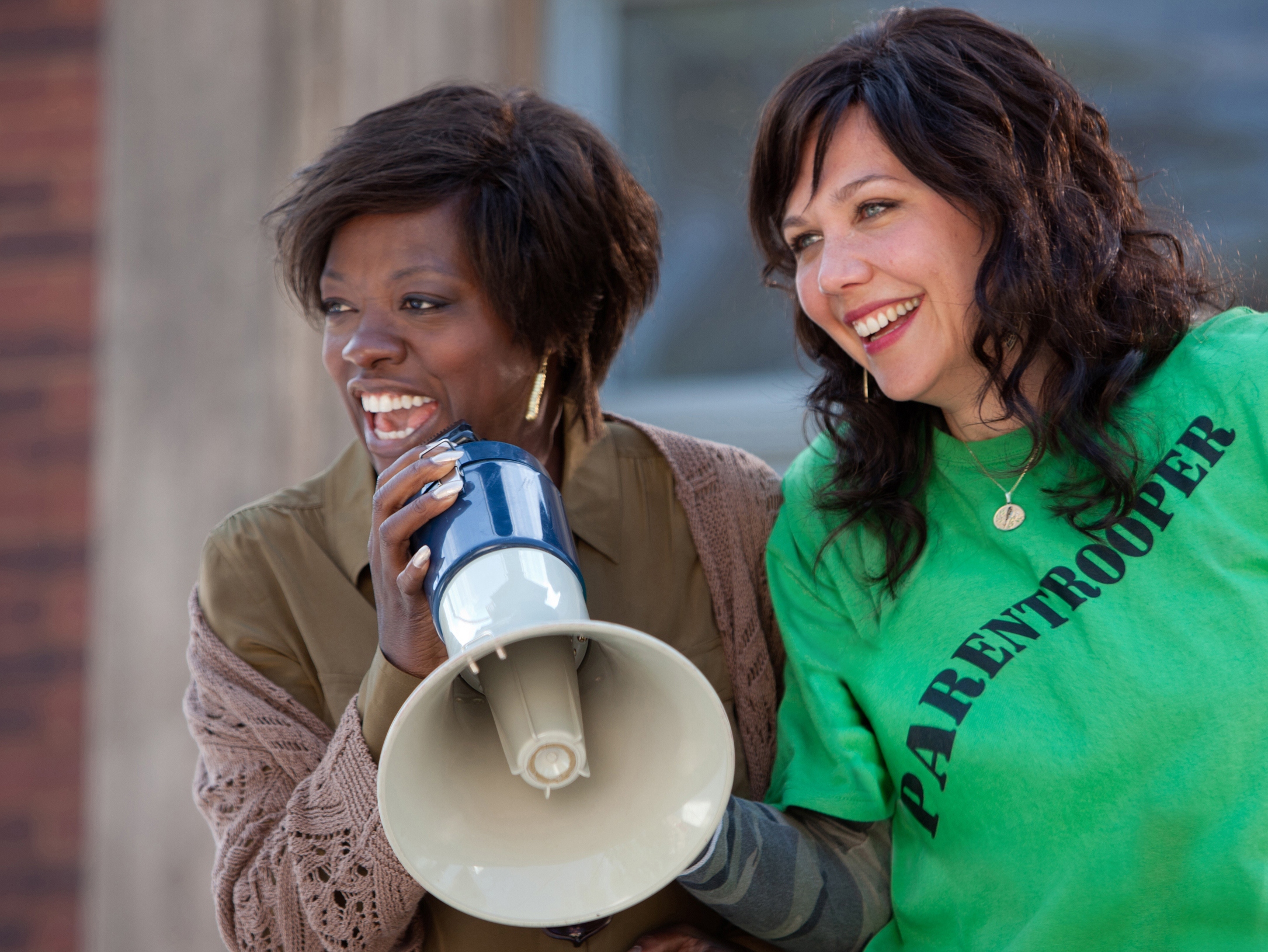
Daniel Barnz seems an odd choice to direct and co-write the pro-school choice saga “Won’t Back Down.”
Barnz is a self-described liberal Democrat who belongs to two unions. That doesn’t mean he should ignore a public education system that clearly needs to change. Still, being both supportive and critical of teachers unions is not a popular position to have, Barnz tells Big Hollywood.
“People would like you to be on one side or the other,” Barnz says. “But you should be able to take an honest look at the situation.”
“Won’t Back Down” stars Maggie Gyllenhaal as a single mom who takes a stand against her child’s failing public school. Viola Davis (“The Help”) co-stars as the teacher Gyllenhaal’s character hopes will help her take over the school in question. The teachers unions featured in the story aren’t too happy about this development, embodied by Holly Hunter’s complex character.
Barnz, whose previously directed “Beastly” and “Phoebe in Wonderland,” says the writing process behind the film proved surreal. He would pen a scene or a subplot and then, weeks later, see it play out in real time somewhere across the country.
“Won’t Back Down” doesn’t just flirt with the cultural zeitgeist on public education. It’s a ripped from tomorrow’s headlines tale of parents trying to reform public education.
Barnz knows a little something about education. His parents were teachers and he has several other family members who taught or still teach for a living. The actors also helped Barnz on the subject as well, bringing their own personal educational stories to his attention.
Even the film’s extras could relate to the material.
“[Extras] would show up and have no idea what the movie is about,” he recalls. Once they got up to speed, they’d often seek him out.
“I’m so connected to this … this is the story of my life,” some extras confided in him.
Barnz says educators critical of the film, including Randi Weingarten, president of the American Federation of Teachers, are missing the point.
“The film is about how people can come together to create better schools for our kids,” he says. “The debate is taking the focus off what we can do right now for our kids.”
Barnz can take solace in the early reactions to the film from average movie goers. Audiences feel “empowered” by the movie, he says, with some patrons saying it made them want to become a teacher.
When a moderator asked what audiences took away from the film regarding teachers unions, they said the issue was far less important than the bigger problem of improving failing schools.
“They didn’t see this as a referendum on teachers unions,” Barnz says.

COMMENTS
Please let us know if you're having issues with commenting.